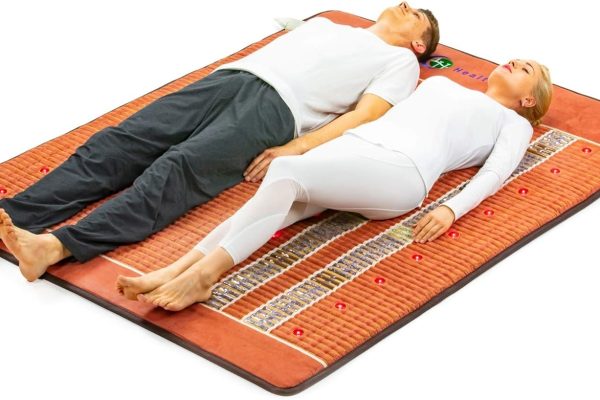Every Canadian citizen starts planning retirement and understands how challenging it might be. Are you sure you would like to spend your golden years in Canada? Do you want to move to another country? If you choose to become a resident of another country, you probably have a lot of questions concerning the income tax return, your OAS and CPP. Will you be able to receive it if you live abroad? Keep on reading to find out more about the ways to manage your Canadian pension.
The Basics of CPP
CPP or Canada Pension Plan is a monthly retirement benefit that replaces 25% of your income. In Quebec, there is a similar benefit called QPP or Quebec Pension Plan. Who can qualify for this pension?
Citizens and residents of Canada who are 60 years old may start getting these benefits but many consumers decide to delay this plan until they reach 65. If you start receiving the CPP or QPP at the age of 65, you will be able to obtain an unreduced pension. Those who are over 70 may get an increased sum of their CPP payments.
Many consumers have the same question if they will be able to collect their CPP while living abroad. If you decide to travel and move to another country when you retire, you will still be able to receive your CPP payments. Unlike other types of pensions, the CPP doesn’t have residency demands. The CPP or QPP benefits will be based on your contributions throughout your career in Canada.
When you can’t cover all the necessary expenses, you may turn to bad credit loans Canada guaranteed approval provided that you still have steady employment or at least a part-time job. There are 94 countries that share a Tax Treaty with Canada. So, if you move to one of them, you can obtain tax treatment on the CPP payments. In other cases, a tax of 25% will be deducted from your CPP monthly benefits.
The Basics of OAS
OAS or Old Age Security is a retirement benefit issued by the government which is income-tested and may be received together with the CPP. Can you also be eligible for the OAS if you reach 60? No, you should be at least 65 years of age to qualify for the OAS.
The amount of benefits you may obtain through this program depends on several factors including the number of years you live in this country and your annual income. The maximum OAS benefit is $642.25.
If you live in a country that has the Agreement on Social Security with Canada, you can count the years of your residency for the OAS and CPP payments. For instance, Canada has a social security agreement with the USA and many other countries. Have you heard about the OAS clawback? It is also called a Recovery Tax.
Generally, many Canadians receive both the OAS and CPP payments while some consumers have other sources of income as well. The OAS benefits are non-contributory. As a result, there is an income threshold and the payments get clawed back until the OAS becomes zero.
The OAS clawback for 2022 is applied to the income of more than $79.845. If you decide to relocate to another country after you retire, you will be able to keep on getting your OAS benefits provided that you resided in Canada for a minimum of 20 years after the age of 18 and are at least 65 years of age at the moment.
How Can You Get CPP and OAS Abroad?
What is a suitable way to obtain your OAS and CPP benefits if you relocate abroad? Those who leave Canada once they retire may still qualify for these types of pension and retirement benefits. There are two options for how you can get these payments: cheque via mail or direct deposit into your checking account.
A foreign exchange transaction will apply if you obtain a direct deposit abroad before the money will be delivered in the local currency. The cheques via mail are sent in Canadian dollars.
Have you obtained your company pension in Canada? Those who received defined contribution pension payments or a defined benefit from their recruiter will be able to continue getting this money when they move abroad. This is the money you have earned so far, so you have the right to receive it even when you become a non-resident. In case you relocate to a Tax Treaty country, it can take a 25% withholding tax.
Additional Thoughts
The Canada Revenue Agency decided to increase OAS payments by 10% in 2022. Seniors who are 75 years of age and older can qualify for this new pension. The new benefit will take effect this year and will be automatically added to your OAS payments. You won’t need to submit any documents or apply from scratch.
Speaking of the Guaranteed Income Supplement (GIS), low-income households may obtain this benefit. This extra payment isn’t taxable, unlike the OAS. Only citizens and residents of Canada are eligible for the GIS payments. Once you relocate and become a non-resident, you won’t qualify for this benefit. If for any reason, you decide to come back to Canada later, you will be able to renew these payments.
Conclusion
Are you planning to move outside Canada and live in another country once you retire? Do you have doubts about getting OAS and CPP abroad? If you become a non-resident, you may still obtain your CPP and OAS payments but there are some exceptions. However, there are some things to keep in mind before you relocate.
It may be better to reach an accountant and discuss all the nuances and tax implications connected with your decision. Each situation is unique, so it’s always better to be prepared before you leave and ensure you will obtain these pension benefits. Those who want to maintain their Canadian residency status should stay in the country for at least 6 months per year.





